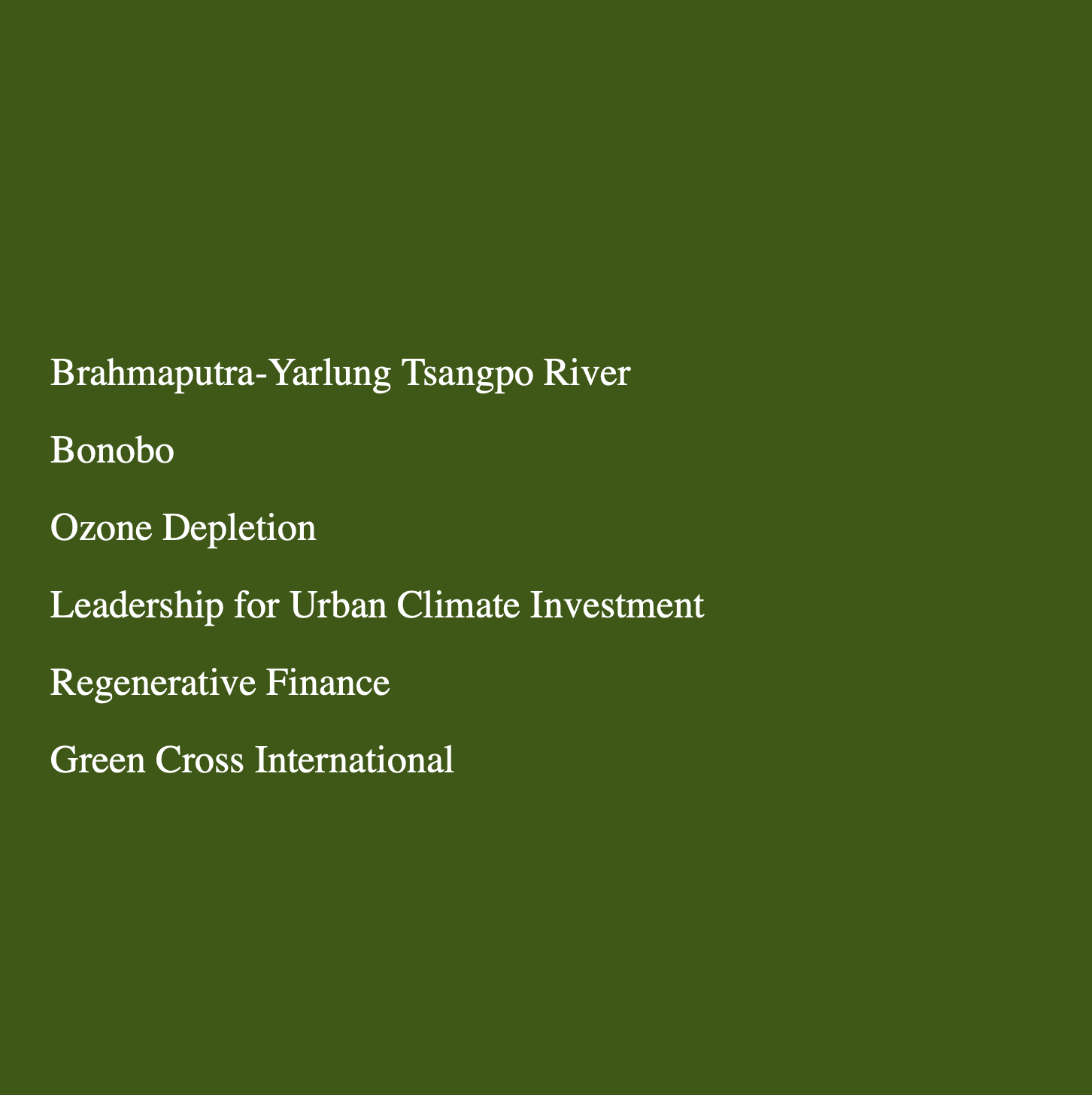Title: "Shaping Resilience: The Convergence of Rivers, Apes, and Climate Leadership from the Brahmaputra-Yarlung Tsangpo to Bonobos and Beyond"
Our planet's rich and varied ecosystems, exemplified by the expansive Brahmaputra-Yarlung Tsangpo River and the endangered Bonobo, are increasingly under pressure. Issues such as ozone depletion underscore the complex environmental challenges we face. Fortunately, initiatives like the Leadership for Urban Climate Investment, financial models like regenerative finance, and organizations like Green Cross International, offer hope for solutions that align ecological health with societal progress.
The Brahmaputra-Yarlung Tsangpo River, one of Asia's most vital waterways, is an artery of life supporting millions of people and countless ecosystems. However, this vital lifeline faces mounting threats from pollution, over-extraction of water, and climate change-induced changes to its flow and volume.
Similarly, the Bonobo, an endangered great ape endemic to the Democratic Republic of Congo, mirrors the fate of many species threatened by habitat loss, hunting, and climate change. Their plight symbolizes the urgency of biodiversity conservation and the repercussions of ecological imbalance.
On a global scale, ozone depletion, primarily caused by human-made chemicals, poses a significant threat. The depletion of the ozone layer allows more harmful ultraviolet rays to reach the Earth's surface, causing health issues in humans and affecting wildlife and ecosystems.
To address these and other environmental challenges, the Leadership for Urban Climate Investment (LUCI) initiative provides a promising approach. This initiative supports cities worldwide in developing and implementing comprehensive climate action plans, essential to reducing greenhouse gas emissions and enhancing urban resilience.
Complementing these initiatives are innovative financial models like regenerative finance. This approach redirects financial resources to foster community resilience, ecological regeneration, and equitable economies, creating a powerful mechanism to support sustainable development.
At the forefront of global environmental advocacy is Green Cross International. Founded by former Soviet leader Mikhail Gorbachev, it promotes dialogue and cooperation to tackle environmental challenges, underscoring the role of shared responsibility in achieving a sustainable future.
In this narrative, each element – from the life-giving Brahmaputra-Yarlung Tsangpo River and the plight of Bonobos, to the global concern of ozone depletion, the transformative potential of initiatives like LUCI and regenerative finance, and the advocacy of Green Cross International – shapes our understanding of environmental challenges and their potential solutions.
In conclusion, from the riverbanks of the Brahmaputra-Yarlung Tsangpo to the rainforests echoing with the calls of Bonobos, we are navigating an era of significant environmental change. However, innovative leadership initiatives, forward-thinking financial models, and persistent advocacy show that we have the tools to address these challenges. Through concerted effort and a commitment to sustainable development, we can protect our diverse ecosystems, mitigate environmental threats, and chart a course towards a sustainable future.
